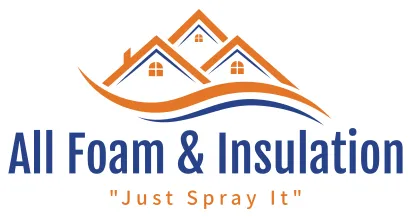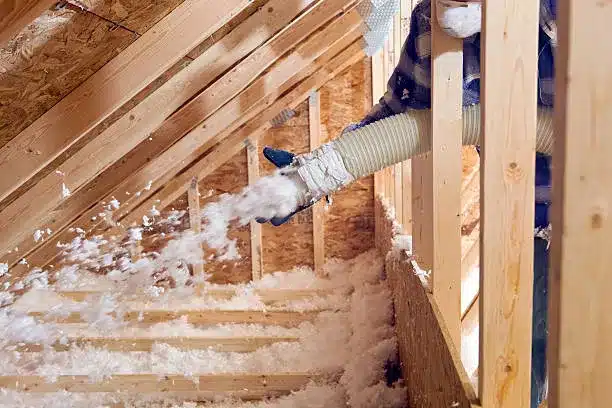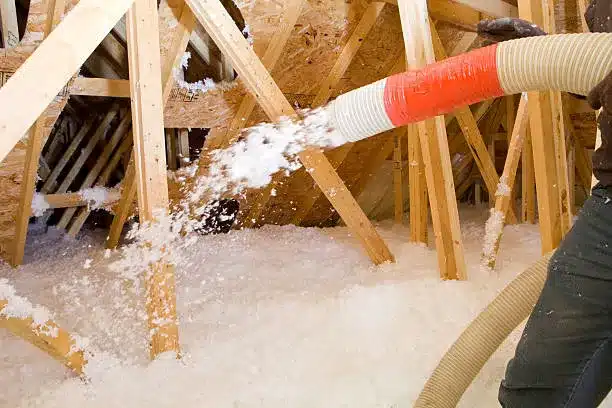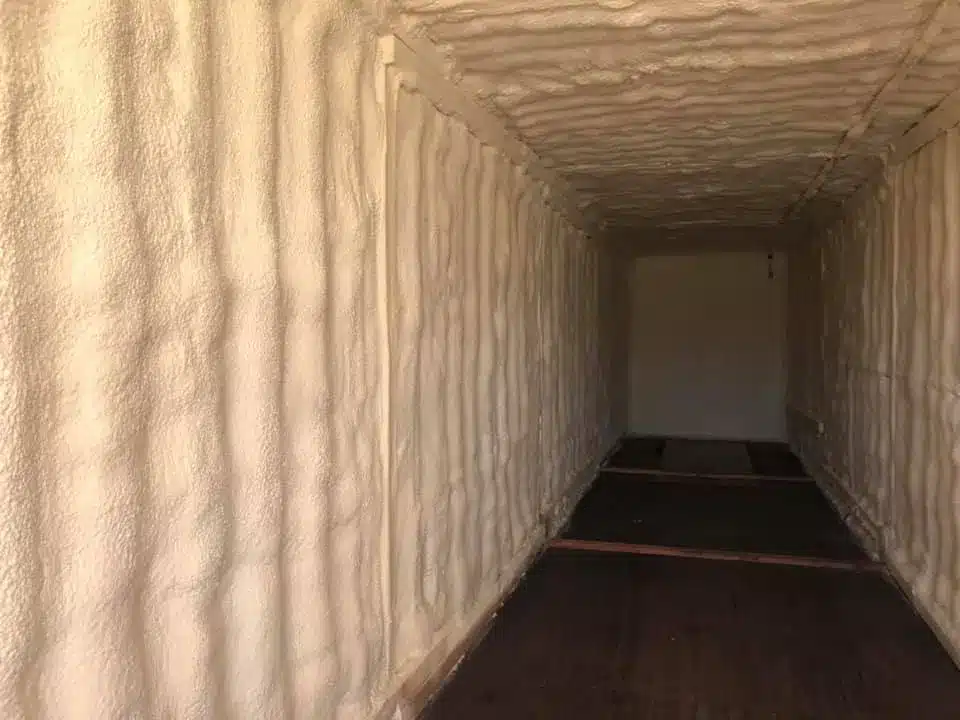Spray foam insulation offers a measurable advantage for commercial buildings in Grants Pass by reducing energy loss, minimizing moisture intrusion, and improving structural durability. With temperature extremes ranging from hot, dry summers to chilly winters, business owners in this region face high HVAC demands. Closed-cell and open-cell spray foam create a consistent air barrier that significantly reduces heating and cooling costs across all seasons.
Compared to fiberglass or cellulose, spray foam performs better in Oregon’s mixed climate by resisting air movement, condensation, and thermal bridging. It’s also suitable for a variety of building types, including retail units, warehouses, and multi-use facilities.
This article explains how spray foam works, what benefits apply specifically to Grants Pass, and how to assess whether it’s the right choice for a commercial property. All Foam & Insulation, LLC draws on practical field experience and extensive project history across Southern Oregon to present accurate and field-tested insights.
Key Advantages of Spray Foam for Commercial Use
Energy Performance and Cost Stability
Closed-cell spray foam creates an airtight envelope. This insulation type helps stabilize indoor temperatures and reduces the need for constant HVAC cycling.
Bonus Tip: In metal buildings or older block structures, spray foam prevents radiant heat buildup, reducing stress on HVAC equipment.
Moisture and Mold Resistance
Grants Pass commercial buildings often contend with moisture-driven issues in winter. Closed-cell spray foam has a low permeability rating and acts as a vapor barrier, reducing the risk of internal condensation and mold growth.
Long-Term Durability
Spray foam does not settle, sag, or degrade when applied correctly. Unlike traditional materials, it adheres directly to surfaces, eliminating gaps. This performance can last for decades with minimal maintenance.
Sound Dampening
Open-cell spray foam helps reduce noise transmission between units or between interior and exterior environments. Useful for retail spaces, schools, and shared office buildings.
Technical Comparison of Insulation Options
| Property | Closed-Cell Spray Foam | Open-Cell Spray Foam | Fiberglass Batt | Blown-In Insulation |
|---|---|---|---|---|
| R-Value per Inch | ~6.5 | ~3.7 | ~3.2 – 3.4 | ~2.5 – 3.0 |
| Air Seal Capability | High | Moderate | Low | Low |
| Moisture Resistance | High | Low | Low | Low |
| Application Flexibility | Walls, roofs, floors | Walls, attics | Standard stud cavities | Attics, hard-to-reach |
| Noise Reduction | Moderate | High | Low | Moderate |
| Lifespan | 30+ years | 20-30 years | 10-25 years | 10-25 years |
Technical Specifications
| Attribute | Closed-Cell Spray Foam | Open-Cell Spray Foam |
|---|---|---|
| Density | ~2.0 lb/ft³ | ~0.5 lb/ft³ |
| Vapor Permeability | < 1 perm (vapor barrier) | > 10 perms (not vapor barrier) |
| Compressive Strength | 25-30 psi | 3-5 psi |
| Expansion Rate | 30-40x original volume | 100x original volume |
| Typical Applications | Exterior walls, roofs, floors | Interior partitions, ceilings |
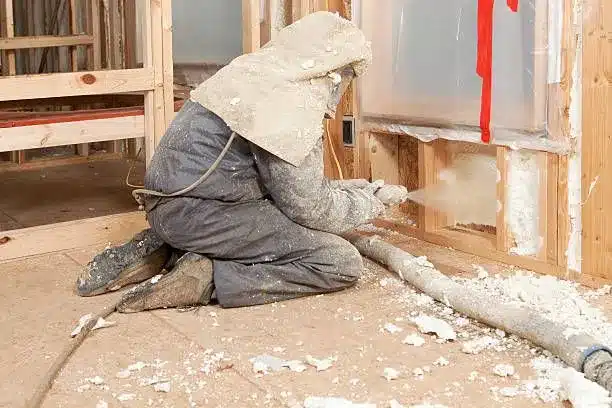
Region-Specific Considerations for Grants Pass
Grants Pass experiences summer temperatures exceeding 90°F and winter lows in the 30s. Spray foam helps buffer these extremes. Many commercial buildings in this area are metal-framed, concrete block, or unvented attic constructions where traditional insulation underperforms.
Pollen, wildfire smoke, and seasonal allergens are common. Sealing air leaks with spray foam helps maintain indoor air quality by reducing outside infiltration.
Market Data for Context
- U.S. Department of Energy (2023) reports spray foam can reduce commercial heating and cooling costs by 30-50% compared to fiberglass.
- Allied Market Research (2024) projects the commercial spray foam market will grow at 6.2% CAGR through 2028, driven by demand in Western states like Oregon.
Things to Consider Before Making a Decision
- Building Type: Assess if the structure includes metal, block, or irregular framing that complicates batt installation.
- Moisture Exposure: Sites near rivers or with poor drainage benefit more from closed-cell foam.
- Occupancy Type: Retail, manufacturing, and office buildings have different acoustic and thermal demands.
- Code Compliance: Confirm local codes regarding flame retardants, fire barriers, and R-value requirements.
- Access for Application: Spray foam needs open access to framing or roof decks before drywall or ceiling panels are in place.
We Provide Commercial-Grade Insulation Solutions
The following services are the most applicable for commercial insulation upgrades:
- Closed-Cell Spray Foam
- High R-value and water resistance. Suitable for roofs, exterior walls, and unvented attics.
- Open-Cell Spray Foam
- Expands more rapidly and is ideal for sound control in interior partitions.
- Blown-In Insulation
- Effective for attics or retrofit projects where spray application access is limited.
- Membrane Roofing
- Protects insulation layers and seals the structure against water and UV damage.
Common Questions Before Installation
How long does it take to install spray foam in a commercial space?
Application typically ranges from 1-3 days depending on building size and surface access. Drying and curing time is additional.
Is spray foam safe for occupied commercial buildings?
Yes, once cured. Installation requires ventilation and safety precautions. Occupancy should resume after off-gassing completes.
Can spray foam be applied over old insulation?
Not directly. Existing materials often need to be removed to ensure adhesion and full cavity fill.
What kind of maintenance is required?
Spray foam is low maintenance. Annual inspections of roof systems and seals are recommended.
Summary and Final Evaluation
Spray foam insulation delivers consistent energy savings, improves building integrity, and adapts to regional climate needs. For commercial properties in Grants Pass, it’s often the most efficient long-term solution. Understanding the differences between open-cell and closed-cell foam is critical to making the right choice.
Evaluate building structure, exposure risks, and code requirements before choosing an insulation strategy. Select the system that aligns with both short-term efficiency and long-term resilience.
Get Expert Insulation Guidance
For accurate evaluations and commercial-grade installation services, contact:
All Foam & Insulation, LLC
Phone: (541) 826-9600
Email: [email protected]
Frequently Asked Questions
What happens if spray foam insulation gets wet?
Closed-cell foam resists water absorption and maintains its insulation value. Open-cell should be replaced if saturated.
Can spray foam help with pest control?
Yes. Spray foam seals gaps and entry points that rodents and insects commonly exploit.
How does spray foam perform in fire-rated assemblies?
It requires a thermal or ignition barrier, such as drywall or intumescent coatings, to meet code.
Will insulation help with warehouse temperature swings?
Closed-cell foam stabilizes indoor temperatures, which is especially helpful for metal-roof warehouses that heat up quickly.
Is spray foam better than fiberglass for soundproofing?
Open-cell spray foam outperforms fiberglass in reducing sound transmission between interior spaces.

